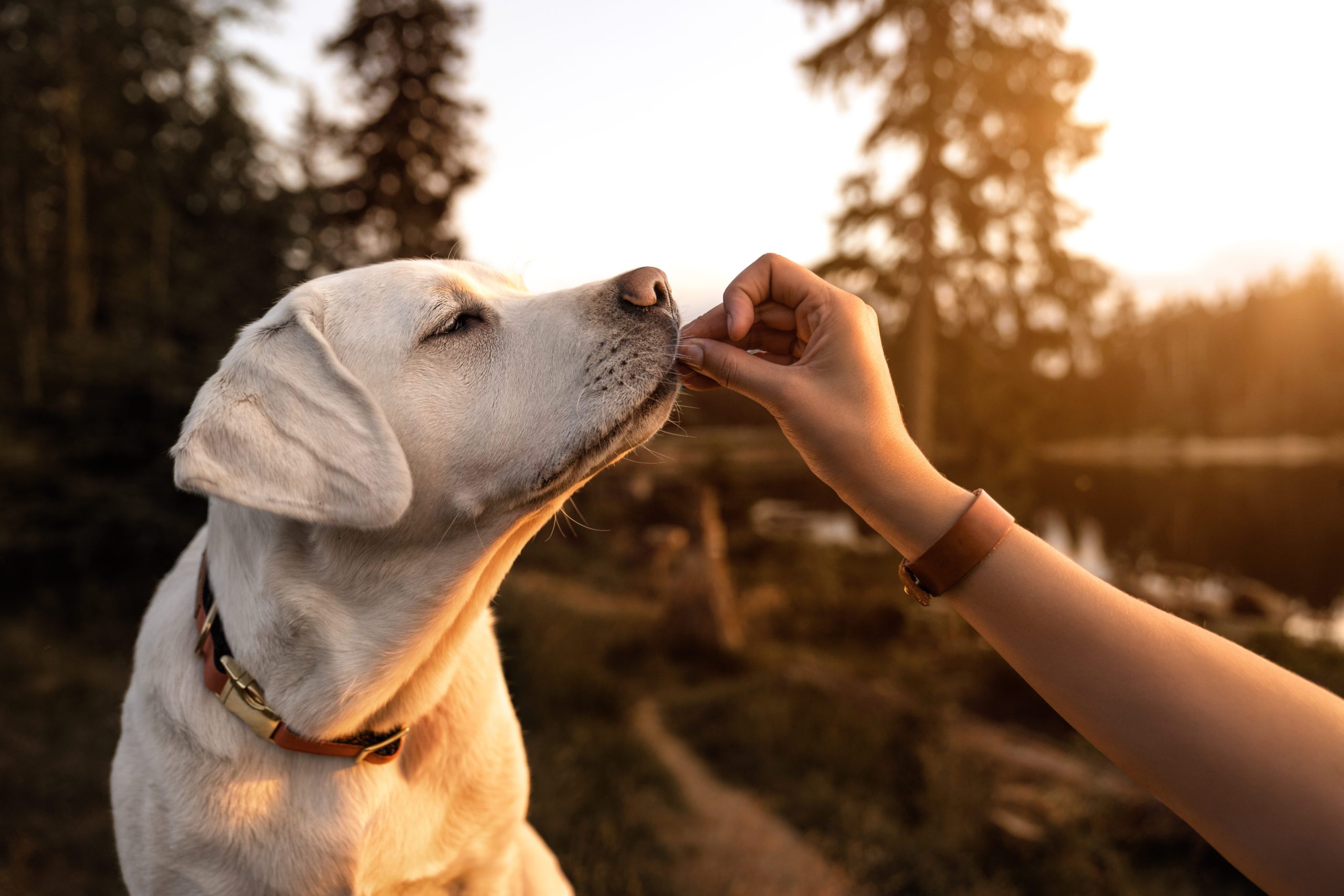
The Magic of Reinforcement Training
Dog training programs are not just for puppies, and learning goes well beyond any training class—it’s a lifetime commitment. Behavior problems are one of the top reasons cited for dogs of all ages being rehomed, surrendered, or abandoned. Lack of training is usually the cause. Happily, most undesirable behaviors are easily corrected with patience and training.
Reinforcement training builds trust and strengthens the bond between you and your pet through rewarding good behaviors. Reinforce and reward your pet with praise, treats, affection, or a toy for playtime. As your dog learns to associate the behavior with good things, you’re reinforcing the lesson. Here, we’ll explore some fun and engaging ways to keep up with training throughout the life of your pet.
Doggy Boot Camp: The Basics of Training
Good manners are a must. To be a good canine citizen and neighbor, every dog should know and respond to basic commands like Come, Sit, Down, Stay, Heel, Off, and No. Most will learn these commands quickly, while others might need some extra practice on a particular skill like stay or heel.
For puppies with short attention spans, begin with short training sessions several times per day. Aside from longer attention spans and more experience with the world, adult dog training is not much different from puppies. Dog training programs like the AKC’s Canine Good Citizen can get new dog owners and their pups off to a good start, no matter the age of the dog.
Practice, Practice, Practice
The opportunity for practicing commands and reinforcement training arises multiple times each day, and consistency is key. Reward your dog in ways that motivate them. For example, if they love walks, make them sit when you put them on their leash. If they love the dog park, make them sit before entering. Going on car rides is the perfect chance to practice getting in and out of the car.
Practice “sit” and “stay” whenever you’re in a distracting environment like picking up the kids at school or out on a walk. Practice sitting politely. Excited lunging, barking, or jumping when guests come over? Sit, down, and stay tells your dog it’s time to relax and be quiet. Take your pooch with you to a pet-friendly store or restaurant to practice good leash manners in public. See? It’s pretty easy to incorporate reinforcement training into virtually every part of the day!
If you have a really smart or energetic dog who loves to learn, you may want to explore additional training and tricks to keep them happy and engaged in positive behaviors. Advanced adult dog training programs for skills such as obedience, agility, tracking, and performance events require a lot of time and patience while confidence builds and skill levels are sharpened. Specialized training programs for service animals, police dogs, therapy dogs, and guard dogs also require intensive work between the animal and the trainer as complex skills are learned and practiced.
It’s never too late for a dog to learn or unlearn a particular behavior, but for serious problems such as aggression, separation anxiety, or excessive barking, it’s best to work with a dog training professional. Not sure which trainer to pick? Ask your veterinarian or local animal hospital for a recommendation. Of course, there’s always the possibility that changes in behavior can stem from an underlying medical issue. If you notice a change in your dog’s behavior that concerns you, make an appointment with your veterinarian for a wellness check.
Remember, your dog’s biggest motivation is to please you and to earn treats and affection. Good training sets behavior expectations and boundaries that can lead to a lifetime of happy wagging tails. We’ll help you keep them happy and healthy along the way.

